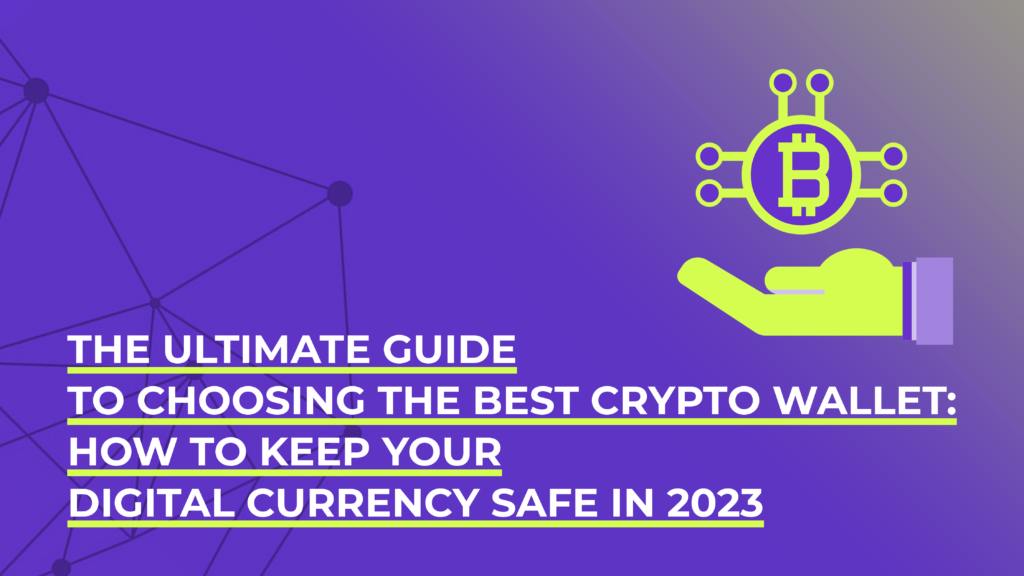In the world of cryptocurrency, having a reliable and secure wallet is essential. A crypto wallet is a software or hardware device that allows you to store your digital currency, buy and sell it, and manage your private keys. With the recent bankruptcy of crypto companies FTX and BlockFi, many consumers are questioning the safety of their funds and the need for a non-custodial wallet.
There are various types of crypto wallets, including hardware, software, apps, and cloud-based options. Hardware wallets are physical devices that store your private keys offline, making them the most secure option for storing large amounts of cryptocurrency. They typically come in the form of a USB drive and can be easily carried around. Examples of popular hardware wallets include Trezor and Ledger.
Software wallets, on the other hand, are digital wallets that can be accessed through your computer or mobile device. They are more convenient and accessible than hardware wallets, but they are not as secure since they are connected to the internet. Examples of popular software wallets include MyEtherWallet and Exodus.
Cloud-based wallets, also known as web wallets, are accessed through a web browser and are stored on a remote server. They are the most convenient option, but they also come with the highest risk of hacking and theft. Examples of popular cloud-based wallets include Coinbase Wallet and Blockchain.info.
Non-custodial wallets are preferred by many crypto users as they allow for the management of their own private data without the need to trust a third party. However, it’s important to note that non-custodial wallets are not risk-free and require the user to keep their password safe, as losing it can mean losing access to their funds.
The use of crypto wallets also comes with the responsibility of protecting one’s investment, as cryptocurrencies are not insured by most governments like traditional bank accounts. To ensure the safety of your cryptocurrency, it’s recommended to store your crypto wallet in a “cold” (hardware) wallet, only keeping what you need online for transactions and storing the rest offline. This is known as “cold storage” and it is the most secure method for storing cryptocurrency.
When it comes to buying and selling cryptocurrency, it’s important to do research on trustworthy exchanges. Not all exchanges are created equal and some have been hacked in the past, putting user’s funds at risk. It’s recommended to use exchanges with a proven track record of security and to only keep the amount of cryptocurrency you need for transactions in your online wallet.
It’s also important to use a password manager for added security. In today’s world, it’s likely that your passwords may be compromised. Setting a complex password, storing it carefully, and changing it often will protect it. Don’t repeat passwords for your crypto wallet or other sensitive sites. A password manager will help you to generate and keep track of different and secure passwords.
Another security measure to consider is the use of a Multiple Factor Authenticator (MFA). MFA protects your account with a password, security token, and/or biometrics. MFA is “knowing and having”: you know your password and have a token, push notification, or biometrics.
When choosing the best crypto wallet for you, consider factors such as cost-effectiveness, security, and mobility. Hardware wallets tend to provide the highest level of security but at a cost, while software wallets may be more cost-effective but come with fewer security features. Cloud-based wallets are the most convenient, but they come with the highest risk of hacking and theft. It’s essential to do your research and invest in a wallet that best fits your needs and priorities. Cyberclaims.net does not provide any investment or trading advice, it is essential to do your own research before using any crypto wallets or investing in any type of activity.

